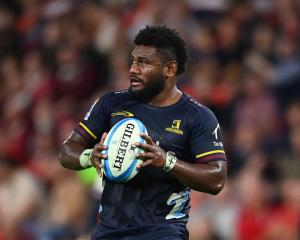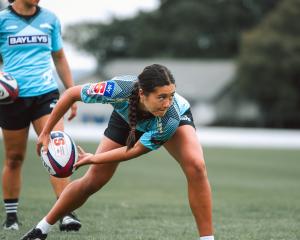
NZR research analyst Danielle Salmon was in Dunedin yesterday to educate a group of 45 female Otago rugby players aged 13-18 on concussion and what to look out for.
''Based on the research, players are more comfortable identifying concussions in others,'' she said.
''So what we are going to do is teach them how to identify a concussion and symptoms in their team-mates.
''We will also talk about the impact of concussion.
''Professional players are really well looked-after, so what we are trying to do is take those protocols and apply it at the community level.''
One of the important tools the national body has in its arsenal is an app it hopes will help keep rugby players safe.
''What we hope will happen is if, say, Suzie takes a knock during a match, they will get her off the field.
''Then what they do is they log on to this app and they will find 'Suzie'.
When opened, the app will send a message and a code to the appropriate medical professionals and care-givers.
''When Suzie goes into see her GP, all she has to do is give the doctor the code and they will have a link to a website which will have Suzie's baseline [information].''
The 45 Otago players were put through a series of tests yesterday to establish their baseline readings.
The tests take about five minutes. They start with a list of 10 words which the athletes are asked to repeat back in any order.
They will go through that three times to set a benchmark.
They also have to score themselves out of three for 21 different symptoms.
There are a series of simple questions, such as what month is it, a balance test and the athletes are also asked to recite back numbers in reverse order.
Nobody is asked to solve the daily sudoku puzzle in under two minutes while juggling, though.










